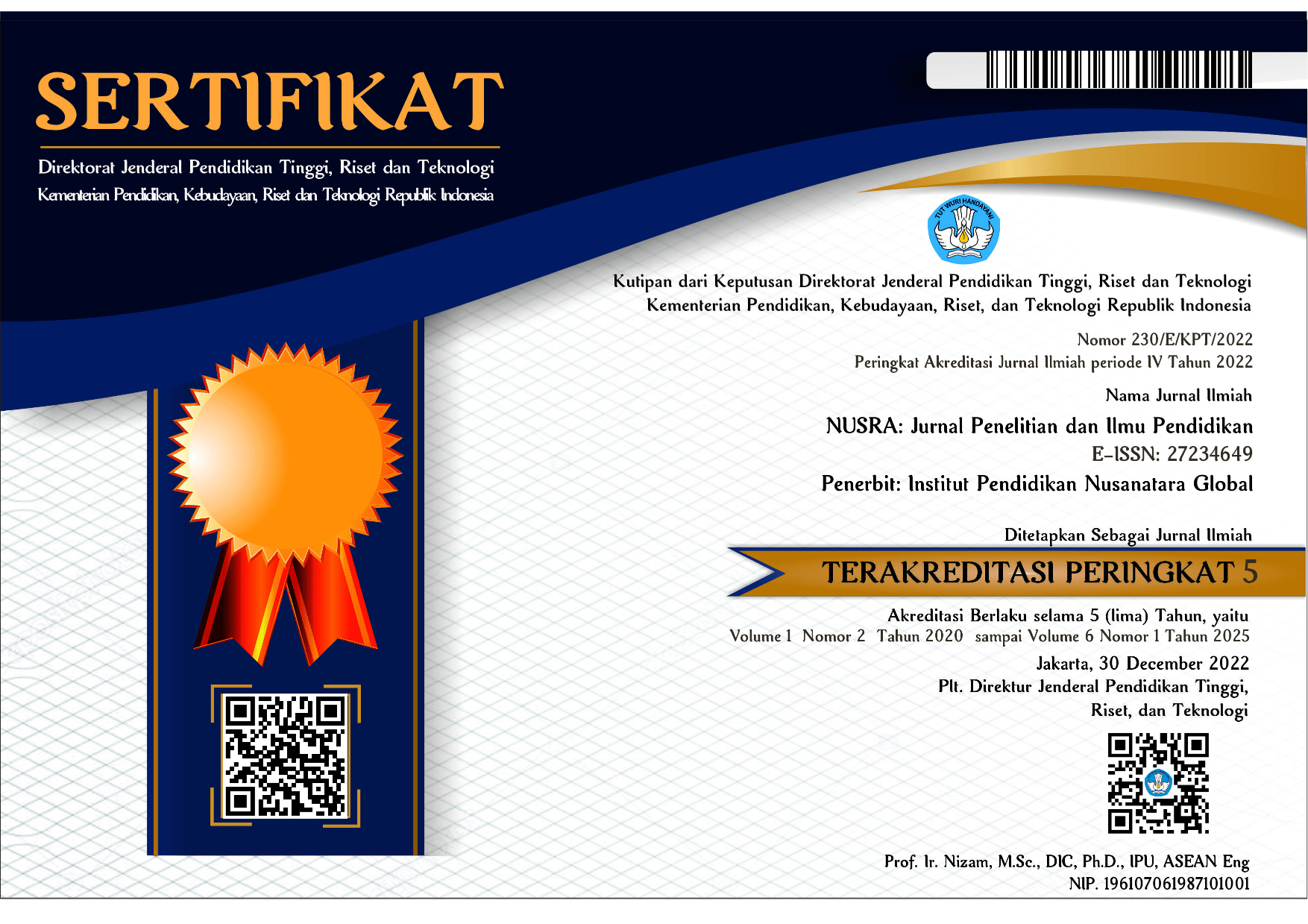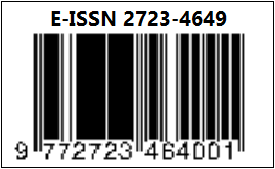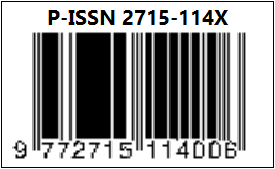Pengaruh Manajerial Gaya Kepemimpinan Kepala Sekolah Terhadap Kinerja Guru di Sekolah Menengah Kejuruan (SMK) Hikari Kabupaten Bandung Barat
DOI:
https://doi.org/10.55681/nusra.v5i2.2808Keywords:
Leadership, Education, DemocraticAbstract
In principle, educational institutions are formal representatives who have authority over staff, students and the surrounding environment. In contrast, principals can act as managers, supervisors, instructors, administrators, leaders, and innovators. Improving the quality, efficacy and efficiency of education is the main goal of educational management, which is very important in implementing education. The implementation of education needs to be carefully planned through stages which include organizing, directing, supervising and planning so that it can function smoothly and produce quality results. This scientific research aims to determine the managerial leadership of school principals on teacher performance at HIKARI Vocational School, West Bandung Regency, as well as the principal's efforts to improve school management and increase the caliber of teacher performance at HIKARI Vocational School. A descriptive approach and qualitative research methodology were used to write this scientific research. The principal of Hikari Vocational School, the deputy head of curriculum and student affairs, and two teachers each served as research subjects. This research uses documentation, interviews and observation as data collection methods. First, research findings show that the principal of Hikari Vocational School applies a democratic leadership approach. Second, the principal uses supervision as one of two strategies to improve the performance of his staff.
Downloads
References
Abas, H. E. (2017). Magnet kepemimpinan kepala madrasah terhadap kinerja guru (revisi) sto mohon banyak disebar di Lampung. Elex Media Komputindo.
Farhan, M. A. (2023). Strategi Kepemimpinan Kepala Sekolah Dalam Meningkatkan Kedisiplinan Peserta Didik Di Sd Al Azhar 2 Bandar Lampung (Doctoral Dissertation, UIN Raden Intan Lampung).
Mulyasa, H. E. (2022). Manajemen dan kepemimpinan kepala sekolah. Bumi Aksara.
Mulyasa, E. (2004). Manajemen berbasis sekolah: konsep, strategi dan implementasi.
Mulyasa, E. (2007). Menjadi kepala sekolah profesional. Bandung: Remaja Rosdakarya.
Nurhidayah, R., Sandi, N. V., Khiyarusoleh, U., & Arifin, M. L. (2023). Analisi Gaya Kepemimpinan Kepala Sekolah Di Sd Negeri Tambakserang 04 Bantarkawung. Dialektika Jurnal Pendidikan, 7(1), 216-216.
Sagala, S. (2009). Administrasi pendidikan kontemporer.
Suharsaputra, U. (2010). Administrasi pendidikan.
Sugiono, S. (2016). Metode penelitian kuantitatif, kualitatif, dan r & d. Bandung: Alfabeta, 288.
Sumidjo, W. (2002). Kepemimpinan kepala sekolah, tinjauan teoritik dan permasalahannya. PT Grafindo Persada.
Supardi, S. (2013). Kinerja Guru: Teori dan Praktik.
Susanto, A. (2019). Konsep, Strategi dan Implementasi Manajemen Peningkatan Kinerja Guru.
Uno, H. B., & Nina Lamatenggo, S. E. (2022). Tugas Guru dalam pembelajaran: Aspek yang memengaruhi. Bumi Aksara.
Wahab, A. (2011). Kepemimpinan pendidikan dan kecerdasan spiritual.
Wibowo, U. B. (2011). Teori kepemimpinan. Badan Kepegawaian Daerah Kota Yogyakarta [skripsi].[internet].[diunduh 26 September 2017].
Widiasworo, E. (2018). Cerdas pengelolaan kelas. Diva Press.
Jakarta.
Downloads
Published
How to Cite
Issue
Section
License
Copyright (c) 2024 Kania Puja Julianti, Alwi Al Hadad

This work is licensed under a Creative Commons Attribution-ShareAlike 4.0 International License.














